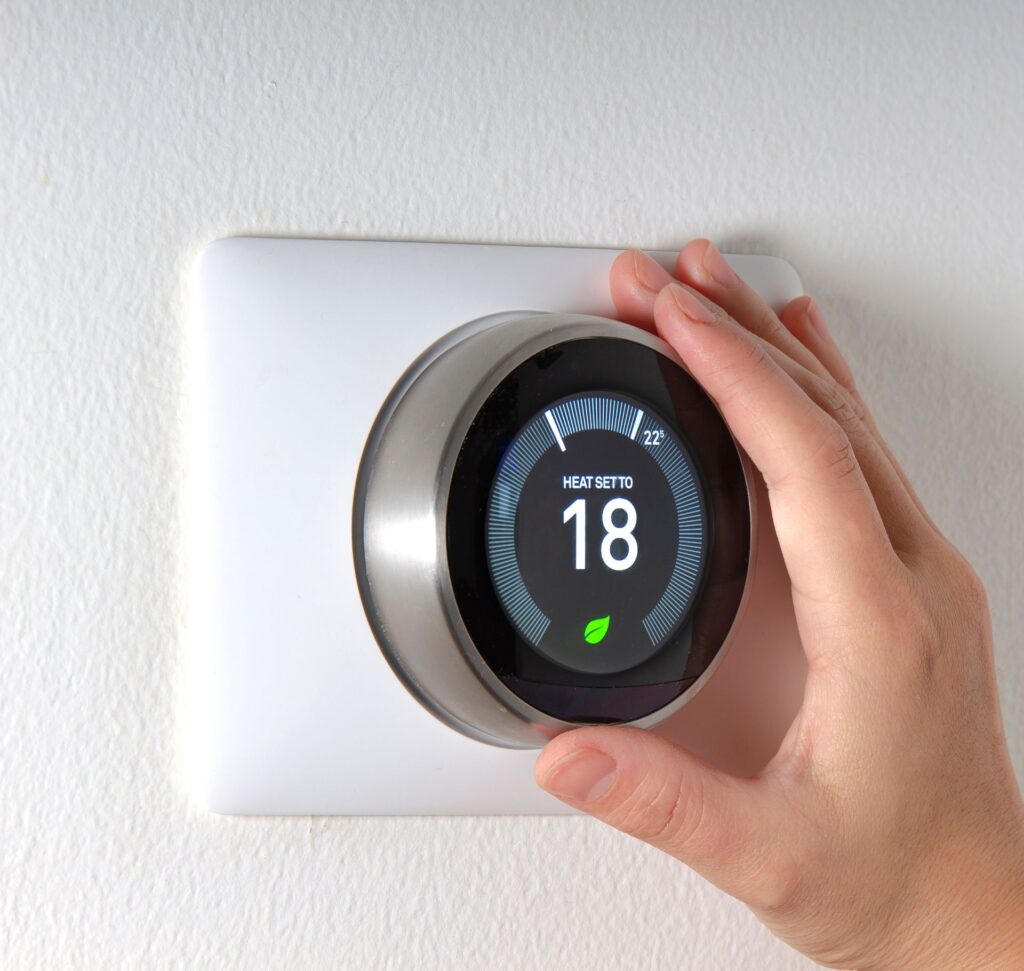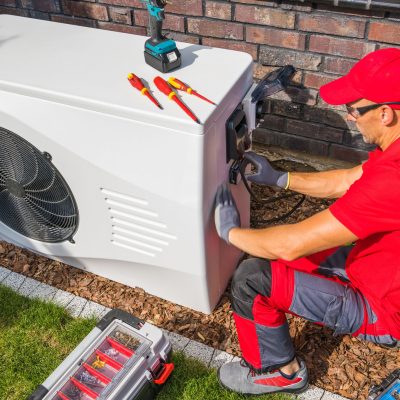The Importance of Eco-Friendly HVAC
HVAC systems play a crucial role in our homes and workplaces, ensuring that we stay comfortable no matter the weather outside. However, the importance of eco-friendly HVAC systems cannot be overstated. As our planet faces increasing environmental challenges, it is essential that we make sustainable and responsible choices in all aspects of our lives, including our HVAC systems.
One of the key benefits of eco-friendly HVAC systems is their reduced impact on the environment. Traditional HVAC systems often rely on fossil fuels for heating or cooling, releasing harmful greenhouse gases into the atmosphere. In contrast, eco-friendly systems utilize renewable energy sources like solar power or geothermal energy, significantly reducing their carbon footprint.
By choosing eco-friendly options, we can help mitigate climate change and contribute to a greener future for generations to come. Another important aspect of eco-friendly HVAC systems is their energy efficiency. These systems are designed to use energy more efficiently, allowing users to save money on utility bills while also conserving precious resources. Energy-efficient HVAC systems employ advanced technologies like smart thermostats, which enable users to customize and optimize heating and cooling schedules according to their needs.
By maximizing energy efficiency, eco-friendly HVAC systems not only benefit the environment but also provide long-term financial savings. However, it is important to acknowledge that transitioning to eco-friendly HVAC systems may come with some trade-offs and challenges. The upfront cost of installing these systems can be higher compared to traditional options.
Additionally, the accessibility and availability of renewable energy sources may vary depending on geographic location and infrastructure. Nevertheless, it is vital to consider the long-term benefits and the positive impact on both our surroundings and our wallets.
Smart Thermostats: Taking Control of Your HVAC
A smart thermostat is a game-changer when it comes to taking control of your HVAC system. Gone are the days of coming home to a sweltering house or waking up to a chilly bedroom. With a smart thermostat, you can easily program your heating and cooling preferences, ensuring that your home is always the perfect temperature for your comfort. But the benefits don’t stop there.
Smart thermostats also allow for remote access through your smartphone, so you can adjust the temperature from anywhere. Did you forget to turn off the AC before heading out for the day? No problem. Simply open the app and make the necessary changes. This not only saves you from unnecessary energy consumption but also gives you the peace of mind of knowing that you have full control over your HVAC system, even when you’re not at home. So, say goodbye to wasted energy and hello to a comfortable and efficient home with a smart thermostat.

Solar-Powered HVAC: Harnessing the Sun’s Energy
Harnessing the power of the sun to power our homes and businesses is not a new concept, but when it comes to HVAC systems, solar-powered options have started gaining traction. Solar-powered HVAC systems utilize the energy from the sun to heat and cool our indoor spaces, offering an eco-friendly and cost-effective alternative to traditional systems.
One of the key advantages of solar-powered HVAC is its ability to reduce our reliance on fossil fuels. By harnessing the abundant and renewable energy from the sun, we can significantly reduce our carbon footprint and contribute to a cleaner environment. Additionally, solar-powered systems can help homeowners and businesses save on their energy bills in the long run. While the initial installation costs can be higher compared to traditional HVAC systems, the savings in energy costs over time can make up for the investment. Moreover, with advancements in technology, solar panels have become more efficient and affordable, making solar-powered HVAC systems increasingly accessible to a wider range of consumers.
However, it’s important to consider the tradeoffs when opting for solar-powered HVAC systems. One of the main challenges is the intermittent nature of solar energy. As the sun sets or on cloudy days, there may not be sufficient energy to power the HVAC system.
To overcome this issue, solar-powered HVAC systems are often designed with backup power sources or integrated with energy storage solutions. These measures ensure that the system can continue to function even when there is limited or no sunlight available. Additionally, the installation of solar panels requires ample roof space or an area with sufficient exposure to sunlight, which may not be feasible for all buildings or locations.
Geothermal Heating and Cooling: Tapping into the Earth’s Resources
Geothermal heating and cooling is a revolutionary solution that taps into the Earth’s natural resources to provide efficient and sustainable HVAC systems. By utilizing the stable temperatures found just below the Earth’s surface, geothermal systems offer a reliable way to heat and cool homes and buildings.
One of the key benefits of geothermal HVAC is its energy efficiency. Unlike traditional systems that rely on burning fossil fuels, geothermal systems harness the Earth’s natural heat, which remains consistent throughout the year. This means that less energy is required to heat or cool a space, resulting in significant energy savings. Additionally, geothermal systems produce fewer greenhouse gas emissions, making them a more environmentally friendly choice.
However, there are some tradeoffs to consider when opting for geothermal heating and cooling. The installation costs can be higher compared to traditional systems, as it involves drilling boreholes or trenches to access the Earth’s heat. This initial investment can deter some homeowners or businesses from choosing geothermal systems. However, it’s important to take into account the long-term savings on energy bills and the positive impact on the environment.
Air Filtration: Improving Indoor Air Quality
When it comes to maintaining a healthy and comfortable indoor environment, air filtration plays a crucial role in improving the quality of the air we breathe. Air filters are designed to trap airborne particles, such as dust, pollen, pet dander, and other pollutants, preventing them from circulating throughout our living spaces. This not only helps to reduce allergy symptoms and respiratory issues but also contributes to a cleaner and fresher living environment.
There are various types of air filters available in the market, each with its own set of advantages and disadvantages. Some common types include fiberglass filters, pleated filters, electrostatic filters, and HEPA filters. Fiberglass filters are the most basic and inexpensive option, but they have a lower efficiency in capturing smaller particles. Pleated filters, on the other hand, offer a higher level of filtration due to their larger surface area. Electrostatic filters use an electric charge to attract and capture particles, while HEPA filters are known for their exceptional efficiency in removing even the tiniest particles.
It’s important to consider factors such as your specific air quality needs, budget, and system compatibility when choosing the right air filter for your HVAC system. With a proper air filtration system in place, you can breathe easy knowing that you and your loved ones are breathing in clean and healthy air.
Ductless HVAC Systems: A Flexible and Efficient Option
Ductless HVAC systems are becoming an increasingly popular option for both residential and commercial spaces. These systems offer a level of flexibility that traditional HVAC systems simply cannot match. With ductless systems, you have the ability to control the temperature in individual rooms or zones, giving you greater control over your indoor environment.
One of the biggest advantages of ductless HVAC systems is their energy efficiency. Unlike traditional systems that can lose a significant amount of energy through ductwork, ductless systems deliver directly to the desired area. This means that you are not wasting energy heating or cooling areas that are not in use. In addition, ductless systems use advanced technology to regulate the temperature, ensuring that you are always comfortable while minimizing energy consumption.
While ductless HVAC systems offer many benefits, there are also some considerations to keep in mind. Installation can be more complex and costly compared to traditional systems, as each unit requires its own outdoor compressor and indoor unit. However, the flexibility and energy savings can often outweigh the initial investment.
With their ability to deliver targeted heating and cooling, they offer greater control and energy savings compared to traditional systems. Although the installation process and upfront costs may require some planning and investment, the long-term benefits make ductless systems a worthwhile option to consider for your HVAC needs.
Make the Switch to Eco-Friendly HVAC Today!
Are you ready to lower your carbon footprint and enjoy long-term energy savings? Upgrade to eco-friendly HVAC systems like solar-powered or geothermal options. Contact us now to learn more about how you can make a positive impact on the environment while keeping your home or business comfortable and efficient. Make the switch to eco-friendly HVAC today!



